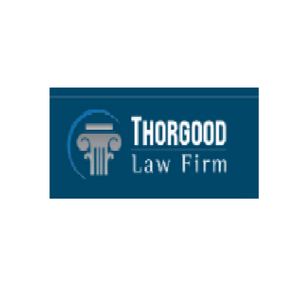Tax compliance can be complex, and mistakes can have serious consequences. Whether you’re facing an audit, dealing with unfiled returns, or concerned about potential criminal charges, understanding criminal tax law is essential for protecting yourself and your business. Finding the right criminal tax lawyer or criminal tax attorney near me can make the difference between a favorable resolution and serious legal consequences.

What Makes Tax Issues Criminal?
Not all tax problems are criminal matters. The IRS typically pursues criminal charges only when there’s evidence of willful intent to evade taxes or defraud the government. Understanding this distinction is crucial for anyone facing tax difficulties.
Tax evasion becomes criminal when taxpayers deliberately attempt to avoid paying taxes they legally owe. This includes hiding income, claiming false deductions, or maintaining multiple sets of books. The maximum punishment for tax evasion is five years in federal prison and a $100,000 fine for individuals, making it essential to seek proper legal representation from a tax evasion attorney nyc or criminal tax attorney near NYC when facing such charges.
Common Criminal Tax Violations
Unfiled Tax Returns
Having unfiled tax returns new york or anywhere in the United States can escalate from a civil matter to a criminal one. The tax law provides for a year of imprisonment for every unfiled tax return, but this harsh penalty is only sought for taxpayers who willfully fail to file returns.
If you have multiple years of unfiled returns, don’t panic. Many taxpayers successfully resolve these issues without criminal prosecution by working with experienced criminal tax lawyers near me and voluntarily coming forward.
Payroll Tax Issues
Payroll tax problems are particularly serious because they involve taxes withheld from employees’ paychecks. When businesses fail to remit these taxes to the IRS, it’s viewed as theft from both employees and the government.
Common payroll tax violations include failing to deposit payroll taxes on time, using payroll tax money for business operations, filing false payroll tax returns, and completely failing to file payroll tax returns. Payroll taxes and self-employment taxes account for 19% of tax evasion cases, making this area a priority for IRS enforcement. If you’re facing a payroll tax audit, consulting with a payroll tax attorney or payroll tax audit attorney is crucial for protecting your interests.
Employment Tax Fraud
Employment tax fraud goes beyond simple non-compliance. It involves deliberate schemes to avoid paying employment taxes, such as classifying employees as independent contractors to avoid payroll taxes, paying workers “under the table,” creating shell companies to hide employment relationships, and filing false Forms W-2 or 1099.

Special Considerations in New York
New York has its own set of tax laws that work alongside federal requirements. Taxpayers in New York City face additional local tax obligations, making compliance even more complex. Working with the best tax attorney in new york who understands both federal and state requirements is essential for navigating these complexities.
New York State aggressively pursues tax violations and often coordinates with federal authorities. This means that a tax problem in New York could result in both state and federal criminal charges. The top tax attorneys new york and best tax lawyers in new york are familiar with both jurisdictions and can provide comprehensive representation. Whether you need an irs lawyer nyc or a new york city criminal tax attorney, choosing experienced counsel is critical.
Lease Incentive Tax Treatment
For New York businesses, understanding lease incentive tax treatment is crucial. Lease incentives received by tenants are generally taxable income, but the timing and method of recognition can be complex. Mishandling these transactions could lead to tax compliance issues that may require consultation with a tax attorney nyc.
Common lease incentive situations include tenant improvement allowances, free rent periods, cash payments to tenants, and below-market lease rates. The Best Payroll Tax Lawyer New York can help businesses properly structure these arrangements to avoid compliance issues.
When to Seek Legal Help
If you’re facing any of these situations, it’s time to consult with a qualified attorney. These include situations where you’ve received a criminal referral letter from the IRS, IRS Criminal Investigation agents have contacted you, you have multiple years of unfiled returns, you’re facing a payroll tax audit with potential criminal implications, or you’ve been charged with tax-related crimes.
How Criminal Tax Cases Develop
Understanding how these cases typically develop can help you recognize warning signs early:
Civil audit or collection action — Most criminal cases start as civil matters
Red flags identified — Patterns suggesting willful evasion
Referral to Criminal Investigation — IRS-CI takes over the case
Investigation — Extensive review of records and interviews
Prosecution decision — Department of Justice decides whether to prosecute
Penalties and Consequences
Criminal tax violations carry severe penalties beyond just paying the taxes owed:
Prison time: Up to 5 years for felony tax evasion
Fines: Up to $100,000 for individuals, $500,000 for corporations
Civil penalties: Additional penalties on top of criminal sanctions
Professional consequences: Loss of professional licenses
Reputational damage: Public record of criminal conviction
Felony tax evasion can lead to a fine of up to $100,000 and up to five years in prison, while misdemeanors such as failing to file a return can lead to penalties of 15% per month, up to 75% of the tax due.
Voluntary Disclosure Programs
For taxpayers who recognize they have tax compliance issues, voluntary disclosure can be an effective way to minimize criminal exposure. These programs allow taxpayers to come forward voluntarily and resolve their tax issues with reduced penalties.
Benefits of voluntary disclosure include reduced criminal prosecution risk, lower civil penalties, ability to negotiate payment terms, and protection from certain IRS collection actions.

Prevention Strategies
The best defense against criminal tax problems is prevention:
Maintain Accurate Records
Keep detailed, accurate records of all income and expenses. Use reputable accounting software and maintain supporting documentation for all transactions.
File Returns on Time
Even if you can’t pay the full amount owed, file your returns on time. The penalty for failure to file is much higher than the penalty for failure to pay.
Pay Payroll Taxes First
If your business is struggling financially, prioritize payroll tax payments. These taxes are held in trust for the government and employees.
Seek Professional Help Early
Don’t wait until problems become serious. Consult with tax professionals when you first notice compliance issues.
Working with Tax Professionals
When facing criminal tax issues, the type of professional you choose matters significantly. The best tax attorney nyc will have specific experience handling criminal tax matters in federal court.
CPAs and Tax Preparers handle routine compliance and civil matters, while Tax Attorneys provide legal representation and attorney-client privilege. However, when facing potential criminal charges, you need a criminal tax lawyer new york or criminal tax attorney new york who specializes exclusively in criminal tax defense. These attorneys understand the unique procedural and substantive aspects of criminal tax law that general practitioners may not fully grasp.
Look for professionals with specific experience in criminal tax matters, particularly those familiar with your local jurisdiction’s practices and procedures. The right criminal tax attorney new york can mean the difference between a favorable plea agreement and a lengthy prison sentence.
Understanding Your Rights
If you’re under criminal tax investigation, you have important constitutional rights including the right to remain silent, right to legal representation, right to be free from unreasonable searches, and right to due process.
Never speak to criminal investigators without an attorney present. Anything you say can be used against you in criminal proceedings.
Resolving Criminal Tax Cases
Criminal tax cases can be resolved through various means:
Plea Agreements
Most criminal tax cases are resolved through plea agreements, where defendants plead guilty to reduced charges in exchange for cooperation and acceptance of responsibility.
Trial
If no plea agreement is reached, the case goes to trial where the government must prove guilt beyond a reasonable doubt.
Sentencing Alternatives
Courts may consider alternatives to prison, such as probation, home confinement, community service, and restitution payments.
Moving Forward After Criminal Tax Issues
Resolving criminal tax issues doesn’t end with the criminal case. Taxpayers must also address outstanding tax liabilities, ongoing compliance obligations, rebuilding professional reputation, and implementing better compliance systems.

Conclusion
Criminal tax law is complex and the consequences of violations are severe. Whether you’re dealing with unfiled returns, payroll tax issues, or facing criminal investigation, early intervention and proper legal representation are essential.
Remember that most tax problems start as civil matters and can be resolved without criminal consequences if addressed promptly and properly. The key is recognizing warning signs early and seeking appropriate professional help.
If you’re facing criminal tax issues, don’t try to handle them alone. The stakes are too high and the law too complex. Invest in proper legal representation to protect your rights and achieve the best possible outcome for your situation.


Write a comment ...